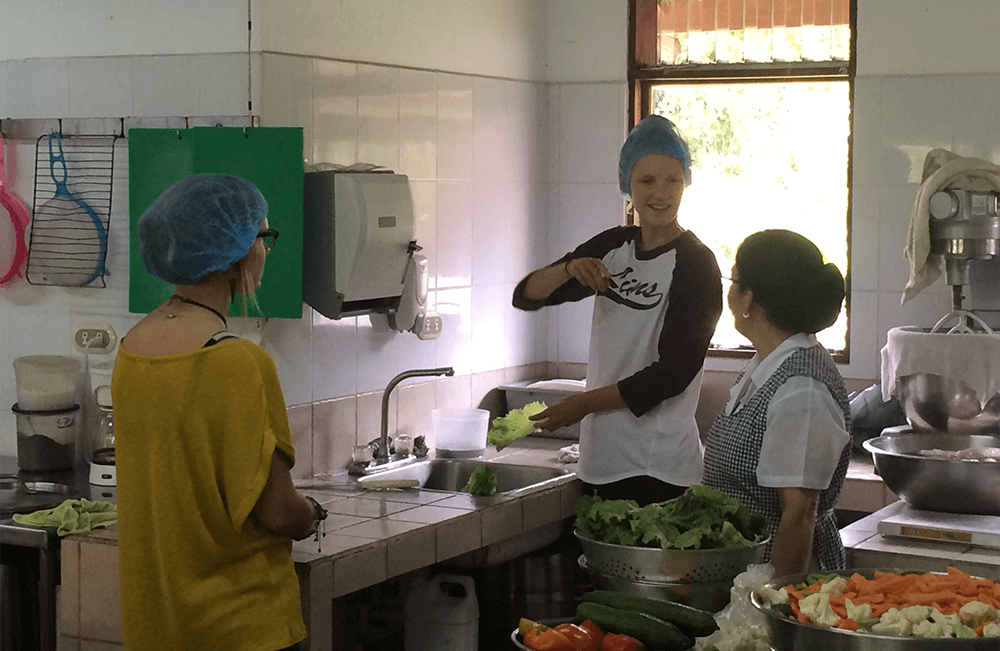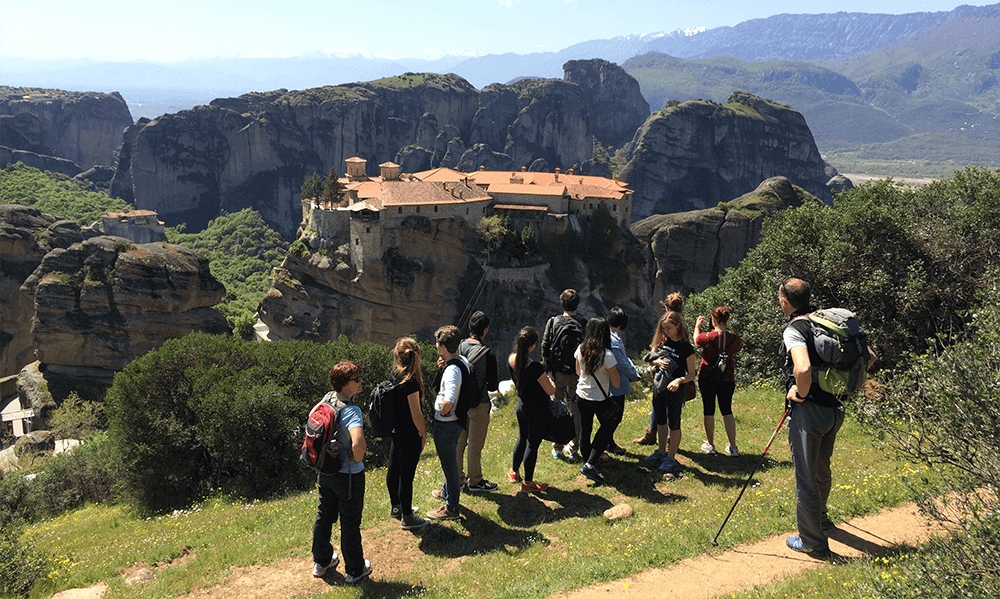As I write this, I'm waiting for our students to return from their weXplore, a five-day excursion that takes students beyond their host city for immersive cultural experiences. For the past two months, we as a school have called Maun, Botswana, our home. It's a small town on the edge of the Okavango Delta and, for many travelers, a doorway into Africa. But Maun is only one perspective, and it...
Read More“But, everyone speaks English anyway!”
I forgive you if you’ve ever said this phrase. You may not want nor need my forgiveness, but you have it anyway.
Let me tell you why.
As a teacher of modern foreign languages, I am accustomed to understanding people when I travel. For instance, when I traveled around Latin America a couple of years ago, it was a breeze. Likewise, when I visit France or Belgium I have no problems understanding or communicating with people. Even my resurgent GCSE German has surprised me on trips to Hamburg and Berlin. But since I’ve been living in Greece this semester, I think I finally get it. I now understand what it feels like to only speak one language.
Now, this inevitably makes me sound like I’m some sort of all-powerful languages machine, blissfully chatting away to the locals while smirking at my less enlightened countrymen; this, however, is certainly not the case. But being a linguist does put you in a minority amongst native English speakers. I guess I’ve been in a little comprehension bubble by mainly traveling in countries in which I speak the lingo. All that changed when I moved to Greece.

Emma and Cameron work on their language skills while helping out in the kitchen
I must confess that I knew very little Greek before I arrived in Athens. Aside from a well-known expletive beginning with ‘m’ and the mandatory ‘Opa!’ as your crockery smashes into smithereens, I pretty much didn’t have a clue how to speak it. “But I’m a linguist! How hard could it be?” I thought to myself as I set the target of being conversationally proficient by the time I left — in three months. No probs.
Three months later, I realize how wrong I was. There were several barriers to me learning Greek, and they are as follows:
Greek is pretty dissimilar to most languages.
I was under the illusion that Greek couldn’t be that difficult. Well, it has a different alphabet for a start, which – thanks to the Roman alphabet transcriptions on the Metro – wasn’t too hard to work out. The main problem then is working out what they actually mean. The issue is that there are very few direct cognates, aside from some prefixes, suffixes, and scientific terms. ‘Megalo’, for instance, means big, and you can work out for yourself what ‘micro’ means. Apart from phrases like these, there’s a lot of vocabulary to learn. This is because the Romance and Germanic languages to which I’m accustomed are on completely different branches of the “language family tree.”
Three months simply isn’t long enough.
Learning a language takes a long time. I should know — I first started learning French and German twenty-one years ago. I’ve been a Spanish speaker eighteen years and I certainly wouldn’t say I’m perfect even after all this time. When I arrived in Greece, I assumed I’d just pick it up as I went along, but it really doesn’t work like that. I intended to get some lessons, but as is always the case, life got in the way. Practice makes perfect, and I clearly didn’t get enough of it. I have actually got to the point where I can order things in a restaurant and in a café, and often the waiter replies in Greek. This is very gratifying despite then having to concede that I don’t have any more words to continue the conversation.
Everyone speaks English.
I hate this phrase. In my first year of teaching, I had a few very disaffected students who would delight in trotting out this worn-out excuse at every opportunity. “We go on holiday every year sir, and everyone speaks English. What’s the point in learning Spanish?” As much as I’ve grown to loathe this phrase, it is ridiculous to deny that English has become the lingua franca of the modern world. If a French person and a Japanese person meet in a hostel in Italy, which language do they speak? Clearly, English is the logical choice. And this is true of Greece as well. It may not be true to say that everyone speaks English here, but you can most certainly get by without ever uttering a work of Greek.

Embrace the people and their culture on your next trip
I guess this brings me to my point: I now get what it’s like to go abroad and not understand what’s going on around you, having to rely on strangers to communicate in your own language. I know what it’s like to try to speak to the locals in their language, only to be shot down in flames when they respond to you in English with an exasperated tone – although I must add that this does not happen very often in Greece. But – and this is the real point – it doesn’t mean that there is no value to learning some basic phrases wherever you go. For every person that has given me a brusque reply in English, there have been twenty who have absolutely beamed when I’ve fooled them into thinking I can speak Greek. All of the phrases I’ve picked up have been through contact with friendly locals. I know zesti is ‘hot’ from the lovely couple that run the coffee shop next to the school. I know scietto is what I say to avoid my cappuccino freddo being unnecessarily sweetened. I know stripsi is ‘turn’ from my fabulous Athenian lindy hop teacher. Every encounter with a local is an opportunity to learn, and it’s one of the things I love about travel.
So yes, I forgive you native English speakers. It is difficult, and I know how it feels. I get it. But I also know how it feels to make the effort to speak another language and have it pay off, and there’s nothing quite like it.